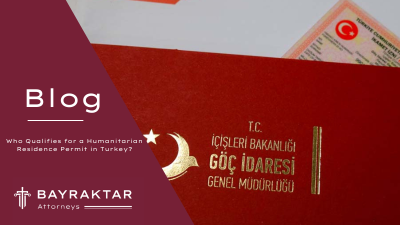
Inheritance law governs how private legal relations, rights, and obligations are handled after an individual’s death. In Turkey, inheritance transfers follow the “principle of universal succession,” as stated in Article 599 of the Turkish Civil Code No. 4721.
This principle ensures that heirs automatically acquire the inheritance in its entirety upon the decedent’s death, without any additional action needed.
Inheriting Property: What to Expect
Imagine you’ve inherited property from a deceased relative. Common issues include delays in transferring inherited real estate and confusion over the necessary procedures and public institutions involved.
This blog will guide you through the steps required to transfer inherited property at land registry offices in Turkey.
The Inheritance Transfer Process
Inheritance transfer, a process without a time limit, involves registering the heirs’ rights, as outlined in a court or notary-issued inheritance certificate, with the land registry. Here’s a breakdown of the process:
- Application: One or all heirs must apply to the relevant land registry office with the required documents. Nowadays, applications can also be made through e-government platforms.
- Ownership Types: There can be joint ownership (where heirs collectively own the property) or fractional ownership (where shares are defined). Fractional ownership allows heirs to transfer their shares individually, while joint ownership requires collective action.
- Land Registry Procedures: Obtain a certificate of inheritance from a notary or the Civil Court of Peace.
- Visit the local municipality to ensure there are no property tax debts and to obtain the property’s current value.
- Settle any inheritance and transfer taxes, then visit the land registry office to register the property in the heirs’ names.
- Important Considerations:
- If some heirs are foreign nationals or reside abroad, the certificate of inheritance must be obtained from the Civil Court of Peace.
- There is no fee for registering inherited properties at the land registry, though a small revolving fund fee applies.
Deadlines for Inheritance Declarations
Heirs must submit a declaration of inheritance within specific timeframes depending on their location and the decedent’s place of death. Missing these deadlines can lead to penalties and complications in the legal process.
The Role of E-Government in Inheritance Transfers
Heirs can now conduct title deed transfer procedures through the e-government platform, making the process more efficient and accessible, especially for those who cannot visit the land registry office in person.
Handling Other Types of Inheritance
For inherited vehicles, heirs need to apply to the traffic registration authority with the appropriate documents. Inherited bank money requires obtaining a balance statement from the bank and ensuring the inheritance declaration reflects this amount.
Consequences of Delayed Inheritance Transfers
If the heirs fail to transfer the property title within two years, the Land Registry Office can initiate the process on their behalf.
Why You Should Consider Legal Assistance
While the process can seem straightforward, each case may require different procedures. Engaging a specialized lawyer ensures that your transactions are handled correctly, efficiently, and in accordance with the law.
At Bayraktar Attorneys, we provide expert legal guidance in inheritance law to help you navigate this complex process with confidence. Contact us for more information or to schedule a consultation.







